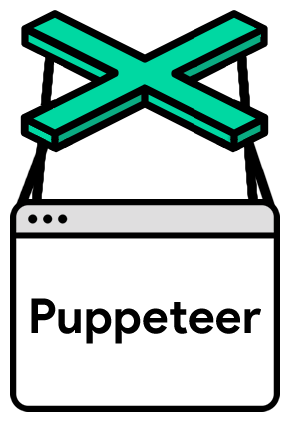Browser Support
- puppeteer:
Puppeteer is specifically designed for Google Chrome and Chromium, providing a high level of control over the browser. It does not support other browsers natively, which may limit its use in cross-browser testing scenarios.
- webdriverio:
WebdriverIO supports multiple browsers and can run tests on both WebDriver and DevTools protocols, making it versatile for different testing needs. It can easily switch between different browser drivers.
- selenium-webdriver:
Selenium WebDriver supports a wide range of browsers, including Chrome, Firefox, Safari, and Internet Explorer. This makes it the go-to choice for projects requiring extensive cross-browser compatibility.
- nightwatch:
Nightwatch supports multiple browsers through the Selenium WebDriver, allowing for cross-browser testing. It is particularly effective for testing in Chrome, Firefox, and Edge, but requires a Selenium server setup.
Ease of Use
- puppeteer:
Puppeteer provides a straightforward API for interacting with the browser, making it easy to perform complex tasks like navigation and DOM manipulation. However, it may require more boilerplate code compared to other frameworks.
- webdriverio:
WebdriverIO combines ease of use with flexibility, offering a rich set of features and a user-friendly syntax. It allows for quick test writing while also providing advanced capabilities for experienced users.
- selenium-webdriver:
Selenium WebDriver has a steeper learning curve due to its extensive API and configuration options. While powerful, it may take more time to set up and write tests effectively, especially for beginners.
- nightwatch:
Nightwatch offers a simple and readable syntax, making it easy for developers to write and maintain tests. Its built-in test runner and assertion library simplify the setup process and reduce the learning curve.
Performance
- puppeteer:
Puppeteer excels in performance, especially when running in headless mode. It can execute tests quickly and efficiently, making it ideal for performance-sensitive applications and tasks.
- webdriverio:
WebdriverIO offers good performance, especially when using the DevTools protocol, which can be faster than traditional WebDriver. It allows for efficient execution of tests and better resource management.
- selenium-webdriver:
Selenium WebDriver's performance can vary based on the browser and the complexity of the tests. It may be slower than headless solutions, particularly in scenarios with many interactions or large test suites.
- nightwatch:
Nightwatch's performance is generally good, but it can be affected by the overhead of the Selenium server. Tests may run slower compared to headless solutions due to this architecture.
Community and Ecosystem
- puppeteer:
Puppeteer benefits from strong backing by Google and has a growing community. It has a rich ecosystem of plugins and tools, making it easy to extend its functionality.
- webdriverio:
WebdriverIO has a vibrant community and is actively developed. It offers numerous plugins and integrations, making it easy to extend its capabilities and adapt to various testing needs.
- selenium-webdriver:
Selenium WebDriver has a vast and mature community, with extensive documentation, tutorials, and third-party integrations. It is widely used in the industry, ensuring a wealth of resources for users.
- nightwatch:
Nightwatch has a smaller community compared to other tools, which may limit the availability of resources and plugins. However, it is actively maintained and has a dedicated user base.
Integration Capabilities
- puppeteer:
Puppeteer can be integrated into existing JavaScript projects and works well with Node.js environments. However, its integration with CI/CD tools may require additional configuration.
- webdriverio:
WebdriverIO offers seamless integration with multiple testing frameworks (like Mocha and Jasmine) and CI/CD tools, making it a flexible choice for modern testing workflows.
- selenium-webdriver:
Selenium WebDriver has broad integration capabilities with various CI/CD tools, testing frameworks, and cloud testing services, making it a versatile choice for large-scale testing environments.
- nightwatch:
Nightwatch integrates well with popular CI/CD tools and services, making it suitable for automated testing in continuous integration pipelines. It supports various reporting tools as well.

